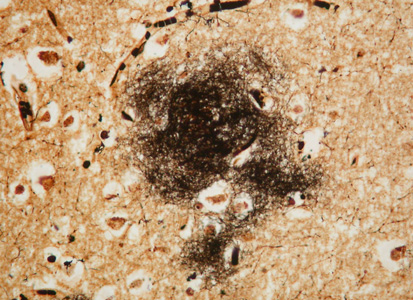Senility, << suh NIHL uh tee, >> is a term sometimes used to describe certain mental problems that affect some elderly people. These problems actually may be symptoms of any of a large number of conditions with a large number of causes. Thus, most experts on the elderly avoid using the term. None of the conditions associated with the term is an unavoidable part of aging, and many can be helped by prompt medical treatment.
The main symptoms associated with so-called senility include a serious loss of memory and a decreased ability to perform such mental tasks as reading or arithmetic. People with such problems may tend to forget the time and where they are. They may fail to recall common facts or to recognize people they know well. A variety of permanent or temporary physical changes in the brain can produce these symptoms. The two most common brain diseases that cause permanent damage are multi-infarct dementia (a more accurate term for what was once called cerebral arteriosclerosis) and Alzheimer’s disease. In multi-infarct dementia, arteries that nourish the brain become partially blocked and cannot supply the brain with enough oxygen-rich blood. As a result, the victim suffers a series of small strokes that destroy much brain tissue. Alzheimer’s disease gradually destroys brain cells. Its cause is not fully understood.

Many other conditions, including head injuries, thyroid diseases, drug overdoses, and poor nutrition, can produce the symptoms of multi-infarct dementia or Alzheimer’s disease. In most cases, the symptoms can be eliminated by medical treatment. But such conditions can result in permanent brain damage if untreated.
Depression can cause serious loss of memory or confusion in older individuals. If depression is suspected, the individual and his or her family members should seek the advice of a neurologist, psychiatrist, or geriatrician (physician who specializes in the diseases of old age).
See also Aging; Alzheimer’s disease; Geriatrics.
